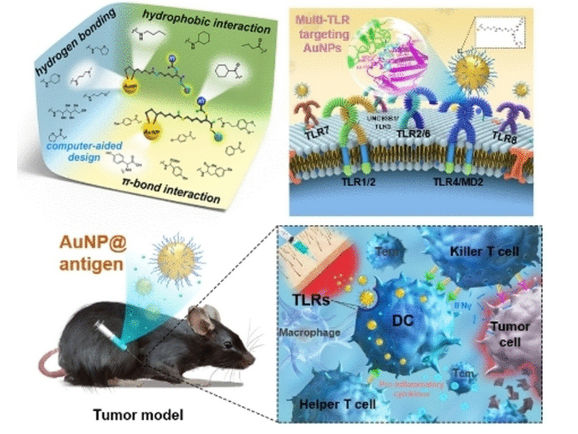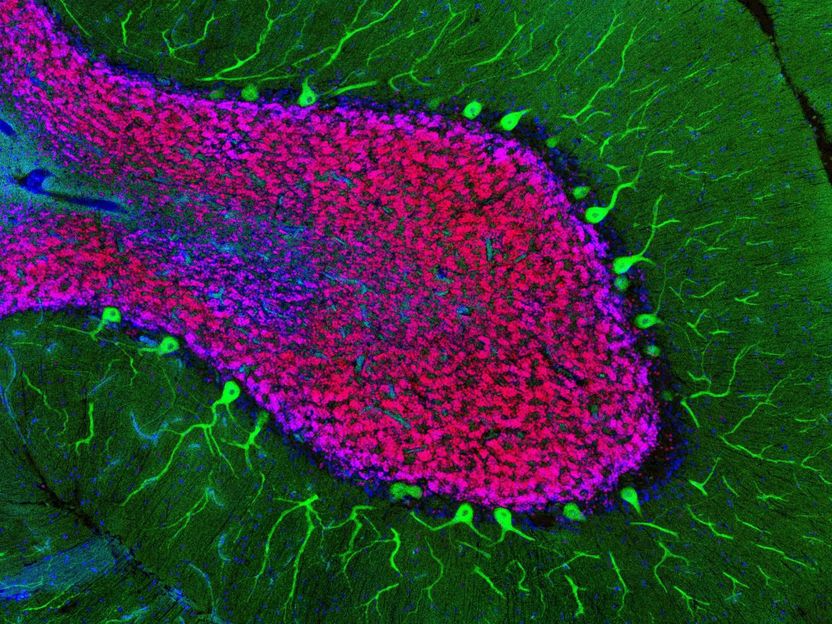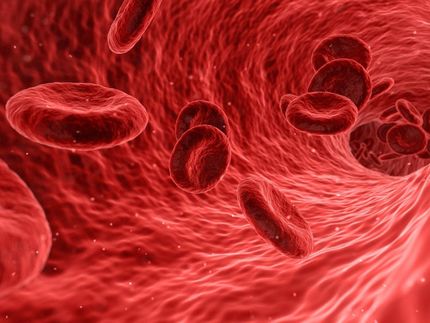Making Immunizations More Effective
Adjuvants developed using computers boost vaccines
In addition to an antigen, many vaccines also contain substances, called adjuvants, which stimulate the immune system. By using computer-aided molecular design and machine learning, a Chinese research team has now developed two novel broad-spectrum adjuvants that can significantly amplify the immune response to vaccines. As reported in the journal Angewandte Chemie, they were able to enhance the effectiveness of immunization against certain forms of cancer in animal models.

© Wiley-VCH
Adjuvants amplify and prolong the effect of vaccine immunizations. Aluminum salts have been successfully used as adjuvants for many decades. Alternatively, there are oil-in-water emulsions that target pattern recognition receptors on immune cells. However, older versions of this type of adjuvant were not effective enough or had troublesome side effects. Newer versions are well-tolerated and effective but need to be tailored for every individual vaccine.
By using computer-aided molecular design and machine learning, Bing Yan, Sijin Liu, and their team at the Research Center for Eco-Environmental Sciences and the Capital Medical University in Beijing, as well as the University of Chinese Academy of Sciences in Beijing and Hangzhou, the Shandong First Medical University & Shandong Academy of Medical Sciences, and the Guangzhou University, have now developed two novel adjuvants with broad-spectrum effectiveness that can significantly boost the immune response to vaccines.
The new adjuvants are designed to bind to toll-like receptors (TLR), a class of proteins used by dendritic cells to detect the characteristic molecular patterns of pathogens. If an “enemy” is recognized, the dendritic cell moves into a lymph node and “presents” its find to the T-cells. These activated T-cells then multiply and enlist further immune cells in the fight.
The team identified structural characteristics of the binding sites on human TLR and developed a collection, a substance library, with 46 different ligands that are compatible with the binding site. The special twist in this case is that these ligands are anchored to the surfaces of biocompatible gold nanoparticles. This causes them to be bound more easily by the TLR. Two of the ligands were found to be especially effective. Comprehensive in vitro, ex vivo, and in vivo studies demonstrated that they bind to several different TLR and increase the activation of dendritic cells, presentation of antigens to T-cells, and their activation.
Mice treated with tumor-specific antigens plus one of these new adjuvants demonstrated strong immune responses that suppressed tumor growth and lung metastases after implantation of specific cancer cells.
Adjuvants further optimized through this method could reduce the problem of decreasing immunity for current vaccines and perhaps make booster vaccines unnecessary. Their use in immunotherapy to treat cancer is also highly promising.
Original publication
Other news from the department science

Get the life science industry in your inbox
By submitting this form you agree that LUMITOS AG will send you the newsletter(s) selected above by email. Your data will not be passed on to third parties. Your data will be stored and processed in accordance with our data protection regulations. LUMITOS may contact you by email for the purpose of advertising or market and opinion surveys. You can revoke your consent at any time without giving reasons to LUMITOS AG, Ernst-Augustin-Str. 2, 12489 Berlin, Germany or by e-mail at revoke@lumitos.com with effect for the future. In addition, each email contains a link to unsubscribe from the corresponding newsletter.
Most read news
More news from our other portals
Last viewed contents
Inner_Wheel_Club
Olanzapine
B-cell_leukemia
Diaporthe_phaseolorum_var._sojae

New method for studying gene expression could improve understanding of brain disease
Blood thinners on 'as needed' basis is safe and effective for lowering stroke risk as compared to long-term use - Researchers find anticoagulants, routine pulse monitoring effective in treating atrial fibrillation






















































